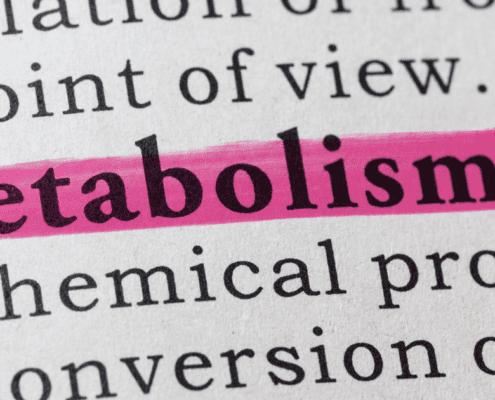How Much Protein Do You Need Per Day?
Estimated reading time: 7 min.
Last updated: Nov 16, 2022 by Michael Fouts
The question of “How Much Protein Should I have?” is a common question that I get asked as a Dietitian and Personal Trainer. The answer to that depends on a few things, which I’ll answer below.
But first, why should one care about their protein intake? There are a few reasons, but the two more common reasons I hear from clients are:
- Muscle growth
- Feel more full
These reasons are important, but protein is important in other ways too. Protein is involved with hormone and enzyme production, storage and transport of various molecules in your body (e.g., oxygen and hemoglobin), and your immune system (e.g., Antibodies are made from protein).
So how much protein do you need per day then? To promote and sustain most of your bodily functions that require protein, it’s recommended to get at least:
0.8 g/kg or 0.36g/lb bodyweight per day
However, it’s likely that you’re not reading this because you want to know the minimum target – rather you’re interested in knowing the optimum intake.
The optimum intake of protein, beyond supporting basic health, depends on a few factors:
1. Frequency and Intensity of Strength Training
More training, and training at a higher intensity, will cause more muscle damage and create a larger demand for protein.
2. Calorie Balance
If you’re focusing on fat loss, and you’re in a caloric deficit, there is an increased demand for protein to:
- Mitigate muscle loss. Unfortunately, when you are in a caloric deficit your body will use muscle for energy. If you are consuming inadequate amount of protein, you will end up using – and losing- more muscle for energy.
- Get more fullness from the food you’re eating. Protein is very satiating – makes you feel full. Eating more will help you feel full from the food you’re eating, while reducing the total amount of food you eat (and calories). In other words, eating more protein helps “turn off your brain” from sending you hunger signals – a common problem with many diets, people feel hungry a lot.
If you’re focusing on building muscle, and you’re in a slight caloric surplus, you’ll need less protein. I’ll outline how much is optimal below.
3. Resistance Training Experience
The rate of gaining muscle can be seen as a logarithmic relationship. In your first year of training, you can gain quite a bit of muscle, but less the following year, and even less the following year. At least naturally.
Your capacity to grow muscle is greater in your earlier years of resistance training, therefore your protein demand will be higher.
4. Muscularity
The more muscle you have the more protein you’ll need to support and maintain that muscle.
5. Overall Activity Level
The more active you are outside of strength training, in particular activities that use muscle contractions (e.g., biking, running, rowing, etc.) will require a greater demand for protein.
Genetics will also play a role; some have a greater disposition to building muscle than others and will require more protein. However, that’s something you can’t control, and it may not matter with the protein intake ranges I’m about to suggest.
Protein Requirements:
I’m going to start by suggesting what the research says about a few different goals, and then give a more practical solution – also based on what the research says.
1. Building Muscle (Hypertrophy)
1.6 g/kg bodyweight / 0.7 g/lb bodyweight
The above target defines the amount of protein needed to promote a positive nitrogen balance, which means having more protein than what is required by your body. This ensures that you have enough protein available for building muscle. Above 1.6 g/kg bodyweight / 0.7 g/lb bodyweight doesn’t seem to result in more muscle growth.
2. Fat Loss
1.8 to 2.8 g/kg bodyweight / 0.8-1.3g/lb bodyweight
Fat loss has the highest range for intake, for a few reasons. If you’re in a caloric deficit your body will use up fat or muscle for energy. You want to mitigate losses of muscle by having a surplus protein available from the diet for your body to use. Secondly, when your on a calorie restricted diet it can be hard to maintain your diet if you’re struggling with feelings of hunger. Having a high intake of protein can help combat this, while keeping your calories in check.
3. Athletic Performance
1.3 to 1.8 g/kg bodyweight / 0.6-0.8g/kg bodyweight
This range is the suggested range for those seeking athletic while trying to maintain their weight – that is key, they are not actively trying to gain or lose weight.
These athlete daily intakes are less than fat loss, and part of the range for building muscle, for a few possible reasons:
- Some athletes might have lower muscularity as added muscle mass can sometimes hinder endurance.
- Getting a lot of calories from predominately protein sources can be too filling.
A More Practical Suggestion
120-160g per day
You can achieve maximum protein synthesis from servings of 20-25g protein, in 3-4 feedings per day. There tends to be diminishing returns after this, and beyond 40g per serving there doesn’t seem to be any added benefit.
Most people have 3-4 eating opportunities per day (e.g., 3 meals, 1 snack), so for most, 120g is a good minimum target and 160g a good maximum. Further, except for fat loss, this range satisfies the goal ranges above for anyone weighing less than 100kg.
This range is also more practical for folks who are larger, where the above ranges would suggest eating 160+ grams of protein per day.
It’s worth noting that the type of protein matters for these totals. You need protein sources that are high quality (have all the essential amino acids), and bioavailable (able to be broken down and used). Most animal source proteins are high quality and bioavailable, while some plant sources are lower quality and/or less bioavailable. Without making this too complex, just understand that if you’re getting your protein from primarily plant sources, you’ll need a little bit more protein; likely 25-30g, instead of 20-25g.
Pick a Protein Target and See What’s Practical For You
I have many clients that tell me it’s challenging to eat more than 100g of protein from food – without supplements. While others naturally eat 160g because they enjoy eating protein focused meals and snacks. I encourage you to experiment with some of the above protein target suggestions and see how they match your eating style and preferences.
For example, if you are heavier and are focusing on fat loss, aim for a minimum of 120g and up to 160g. If you’re consuming 160g per day and hunger is issue, experiment with 180g and reassess if you should stay at 180g or go higher yet.
Many naturally have an intake that’s higher than what they need. Is this a bad thing? If your kidneys are healthy, no. But what you should understand is the law of diminishing returns – you may need less than you think, and excessive protein intakes will not increase muscle mass.
Some more helpful information (click on the text to expand):






